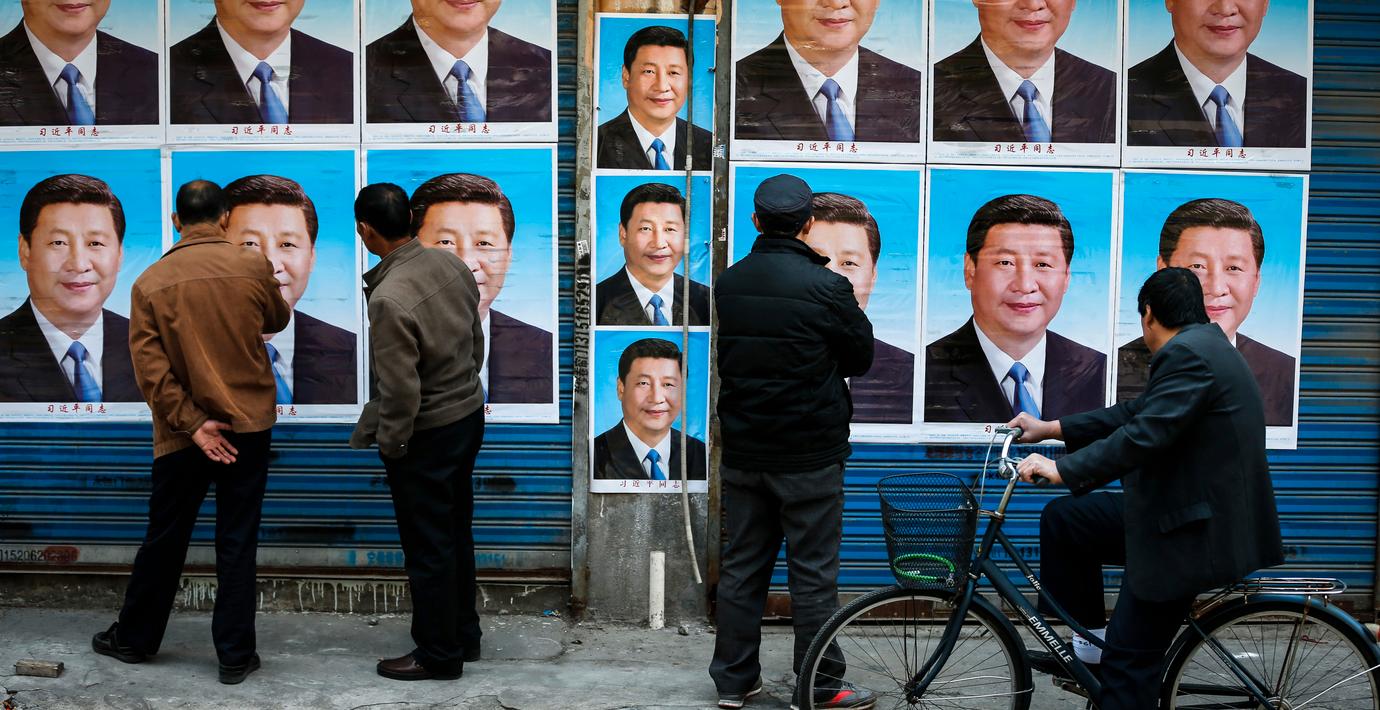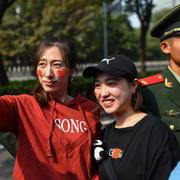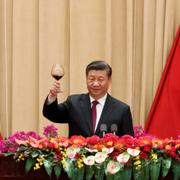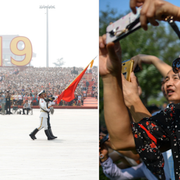
Ekonom: Xi kanske inte rätt man att lyfta ekonomin
De väntade grundlagsändringarna i Kina, som i princip ger presidenten Xi Jinping makten på livstid, kan få avgörande konsekvenser för landets ekonomi, skriver CNN.
Att koncentrera makten till få är riskabelt och de politiska besluten kommer vara av sämre kvalitet, säger Julian Evans-Pritchard, ekonom vid Capital Economics.
CNN skriver att mycket står på spel. Kinas ekonomi är i behov av reformer, bland annat gällande stigande bolagsskulder och statsskulder.
Alex Wolf, ekonom vid Aberdeen Standard Investments i Hong Kong, säger att Xi Jinping kanske inte är rätt man att lyfta världens näst största ekonomi till nästa nivå. Att öka tillväxten när befolkningen åldras och arbetsstyrkan minskar är en stor utmaning, tillägger han.
bakgrund
Xi Jinping
Wikipedia (en)
Xi Jinping (Chinese: 习近平; pinyin: Xí Jìnpíng; Mandarin: [ɕǐ tɕîn.pʰǐŋ]; born 15 June 1953) is a Chinese politician currently serving as General Secretary of the Communist Party of China, President of the People's Republic of China, and Chairman of the Central Military Commission. As Xi holds the top offices of the party, the state, and the military, he is sometimes referred to as China's "paramount leader"; in 2016, the party officially gave him the title of "core" leader. As General Secretary, Xi holds an ex-officio seat on the Politburo Standing Committee of the Communist Party of China, China's top decision-making body.
Xi Jinping is the first General Secretary to have been born after the Second World War. The son of Chinese Communist veteran Xi Zhongxun, Xi rose through the ranks politically in China's coastal provinces. Xi was governor of Fujian from 1999 to 2002, and governor, then party secretary of neighboring Zhejiang province from 2002 to 2007. Following the dismissal of Chen Liangyu, Xi was transferred to Shanghai as party secretary for a brief period in 2007. Xi joined the Politburo Standing Committee and central secretariat in October 2007, spending the next five years as Hu Jintao's presumed successor. Xi was vice president from 2008 to 2013 and Vice Chairman of the Central Military Commission from 2010 to 2012.
Since assuming power, Xi has introduced far-ranging measures to enforce party discipline and to ensure internal unity. His signature anti-corruption campaign led to the downfall of prominent incumbent and retired officials. Xi has tightened restrictions over civil society and ideological discourse, advocating internet censorship in China as the concept of "internet sovereignty". Xi has called for further market economic reforms, for governing according to the law and for strengthening legal institutions, with an emphasis on individual and national aspirations under the slogan "Chinese Dream". Xi has also championed a more assertive foreign policy, particularly with regard to China–Japan relations, China's claims in the South China Sea, and its role as a leading advocate of free trade and globalization. He has also sought to expand China's Eurasian influence through the One Belt One Road Initiative.
Considered the central figure of the People's Republic's fifth generation of leadership, Xi has significantly centralized institutional power by taking on a wide range of leadership positions, including chairing the newly formed National Security Commission, as well as new steering committees on economic and social reforms, military restructuring, and the Internet. Xi’s political thoughts have been written into the party constitution. Xi has had a cult of personality constructed around himself "with books, cartoons, pop songs and even dance routines".
Omni är politiskt obundna och oberoende. Vi strävar efter att ge fler perspektiv på nyheterna. Har du frågor eller synpunkter kring vår rapportering? Kontakta redaktionen



